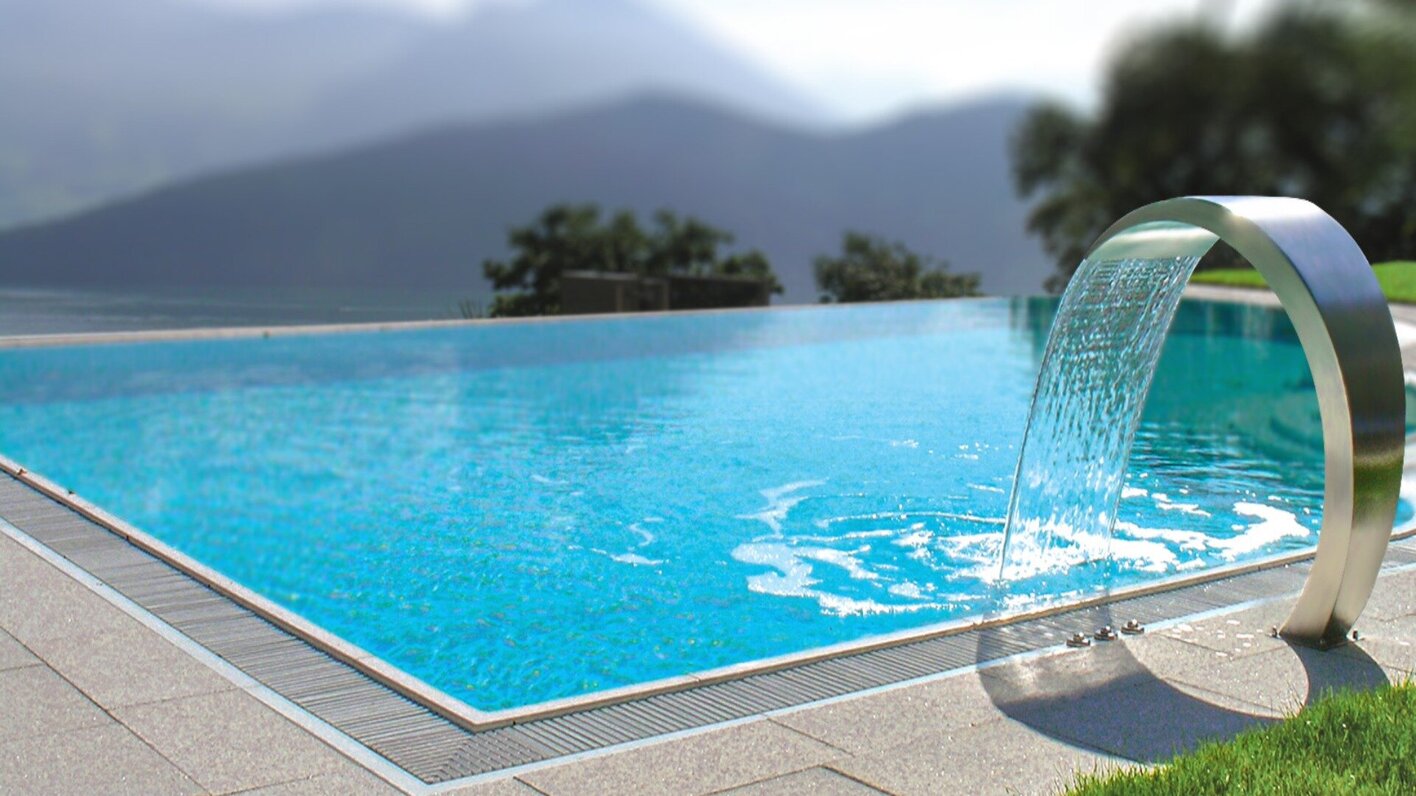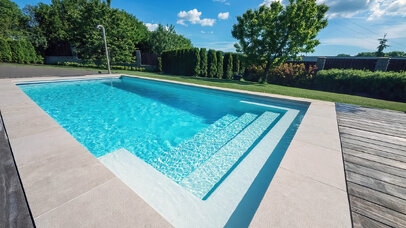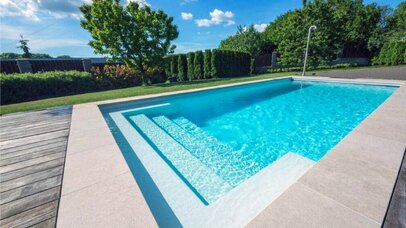
Choosing the finish material is important when building or renovating a pool. The three most common options are vinyl, fibreglass and concrete. Each has its pros and cons to consider.
This blog post explores the key characteristics of vinyl, fibreglass and concrete pool finishes. We’ll cover factors like costs, maintenance requirements, appearance and lifespan.
By learning the advantages and tradeoffs of each type, you can make an informed choice based on your budget and priorities. Whether you value low cost or longevity, easy upkeep or aesthetics, comparing vinyl, fibreglass, and concrete will prepare you to select the best swimming pool finish.
Vinyl Pool Finishes

Vinyl is one of the most affordable and easy-to-install pool surface options. It is commonly used for above-ground pools and some inflatable pools.
A vinyl pool finish creates a seamless, smooth surface through interlocking plastic panels. This makes it a low-maintenance choice, as the material does not stain or corrode like other pool shell materials.
Pros of Vinyl Finishes
- Inexpensive material and installation costs
- Easy to clean and requires little maintenance
- Creates a smooth, seamless surface
- Does not stain or corrode like other materials
Cons of Vinyl Finishes
- Shorter lifespan than fibreglass or concrete (10-15 years)
- The surface can crack or fade from UV exposure over time
- Seams may leak if not properly installed
- Less durable than other materials
- Not suited for permanently installed inground pools
Fibreglass Pool Finishes
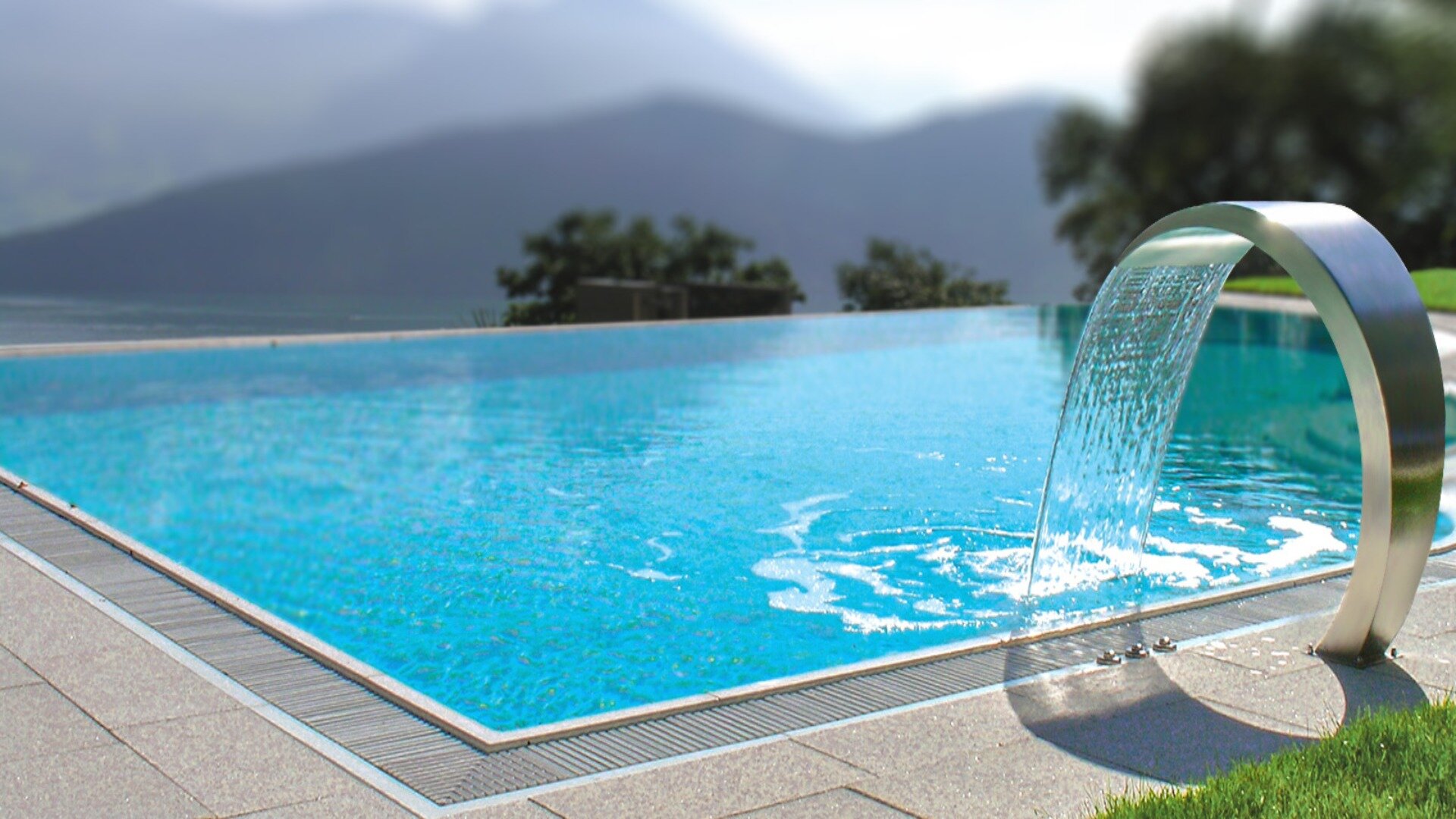
Fibreglass is a very durable and popular choice for inground swimming pools. It provides corrosion resistance, making it withstand water and chemicals better than other materials.
Installing a fibreglass pool begins with constructing a mould for the desired shape. Layers of fibreglass, resins and gel coats are then applied to the mould to create the finished surface. This cures to form a rigid yet lightweight shell.
Pros of Fibreglass Finishes
- Highly durable and corrosion-resistant
- A seamless surface is easy to clean and maintain
- Lifespan of 50 years with proper care
- Lighter weight material than concrete
- A wide variety of colours and textures are available
Cons of Fibreglass Finishes
- Higher upfront material and installation costs
- Minor cracks or damage cannot be repaired
- The surface can fade over decades of sunlight exposure
- More limited shape options compared to concrete
- Small imperfections may be visible in the finish
Concrete Pool Finishes
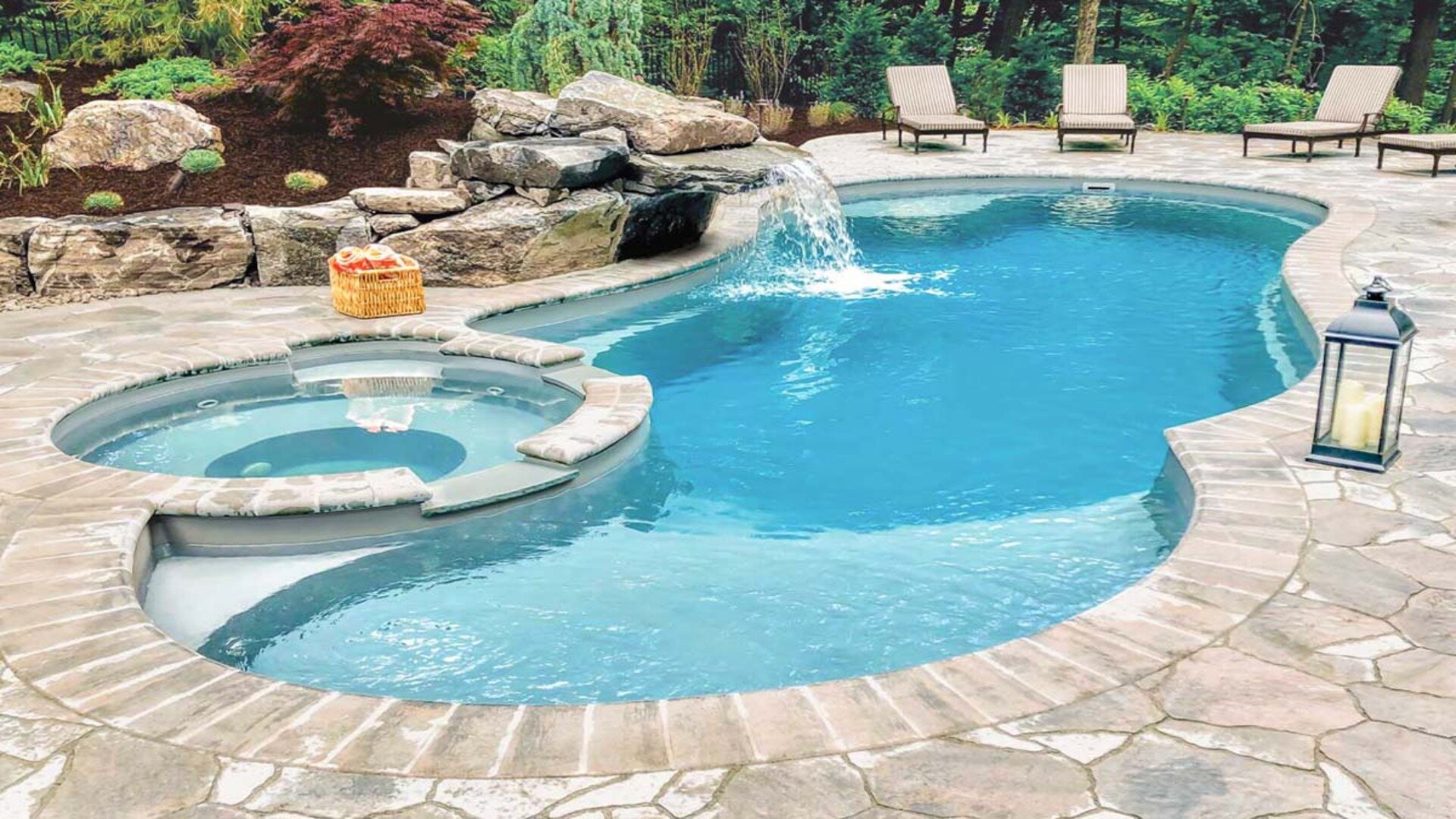
Concrete is the most traditional material for building permanent inground swimming pools. It offers a rugged construction method that can take on complex custom shapes.
The process involves forming walls, laying rebar, and casting the pool shell out of wet concrete. This cures into a strong, watertight structure. Concrete lends a natural aesthetic with varied texture and tone options available.
Pros of Concrete Finishes
- Extremely durable material that can last 50 years
- Allows for complex custom designs and shapes
- Gains attractive texture and tones over time
- Low maintenance with proper protective sealant coating
- Holds resale value well due to longevity
Cons of Concrete Finishes
- Higher material and installation costs upfront
- The labour-intensive multi-step construction process
- Requires preventative maintenance like weekly brushing
- Minor cracks may develop or leak over decades
- Not as quick or easy to repair as vinyl or fibreglass
- Surface imperfections are possible without an expert-poured
Maintenance Requirements
In terms of maintenance requirements, vinyl pools need weekly brushing to remove debris from the surface. Occasional use of vinyl cleaner helps maintain the shine and condition of the material.
Fibreglass pools require weekly cleaning and brushing and professional regel coating of the gel coat surface every 10 years to prevent fading. Concrete pool owners need to scrub the surface with an acid wash every week and reseal the protective coating every other year for upkeep.
Durability and Lifespan
When considering durability and lifespan, vinyl typically lasts 10-15 years before cracking or fading damage becomes noticeable if properly maintained. Fibreglass is extremely durable and, with care, can stand up for 50 years before replacement is needed.
It offers the longest-term resilience of the three materials. Concrete pool shells also provide decades of use, lasting 50 years or longer if the surface remains sealed from water penetration. It does require the most repairs over its lifetime for any cracks that form.

Aesthetic Appearance
In terms of aesthetic appearance, vinyl creates a smooth and shiny surface but has limited colour options. Fibreglass allows for varied textures during installation and can be dyed in a wide array of hues.
The concrete finish provides a natural tone and texture that some owners feel improves with age. It also allows for added stamped or stained concrete details.
Suitability for Different Pool Designs
For suitability to different pool designs, vinyl works best for above-ground pools and inflatable styles due to its flexibility. Fibreglass can form any pool shape, including complex contours. Concrete is highly suitable for custom inground pool shapes but requires reinforcement for extra tall walls above average height.
Selecting the Perfect Pool Finish for Your Oasis
Vinyl, fibreglass and concrete each have advantages depending on your priorities for a swimming pool project. Vinyl offers a low-cost option best suited for temporary applications. Fiberglass provides maximum durability and versatility in design. Concrete is the hardest material that can develop an attractive patina over decades. Considering your budget, desired lifespan, and preference for maintenance or appearance will help determine the best finish material.
We at The Pool Co. aim to simplify the pool building and renovation process for all our customers. After reviewing this guide on vinyl, fibreglass, and concrete comparisons, please feel free to contact one of our representatives. We’d be happy to discuss your property needs and help you select the pool finish material that best fits your lifestyle and vision. Reach out to us today to get started on your customised pool design project.
